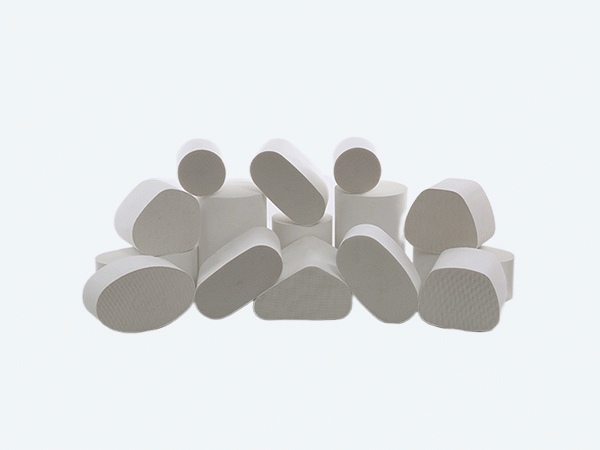





share:
Product introduction
Ceramic Honeycomb Catalysts are widely used in a variety of applications nowadays. The Ceramic Honeycomb is proven with excellent performance in the adoption of metallic monoliths and metallic open-pore foams as catalyst support, due to its low density, high surface area per unit volume, good heat and mass transfer properties and excellent mechanical strength.
The products prepared by extrusion molding have a uniform pore size, shape, and distribution and are applicable to volume production. Apart from being an efficient filter, the honeycomb structure of the walls also makes this material quite strong, with an overall increased surface area. It provides extensive thermal shock resistance in applications, withstanding operating temperatures up to 1400℃. The square shaped holes in ceramic honeycomb having very thin wall thickness, and the open frontal area is large, thus the back pressure of exhaust air will be reduced significantly.
Ceramic Honeycomb parts are typically used in Stationary Engines within Industrial processes, Power Generation to reduce VOC and NSCR emissions, or small engine, light duty and heavy duty exhaust emission system in auto industry.
Product feature
1. Cordierite material, low Coefficient of Thermal Expansion (CET).
2. Low weight density, low heat absorption, quick temperature rises.
3. High open frontal area (OFA), thin wall thickness, low back press drop.
4. Optimal porosity and Median Pore Size, high filtration efficiencies.
5. Optimal cell design, high soot loading, long regeneration cycle life.
6. Good thermal shock resistance, high temperatures application.
7. Customized shape & dimension, diameter from 4.66inch to 14inch, length from 4inch to 17inch.
Product performance
1. Chemical Composition
Al2O3: 33.7-36.7%
SiO2: 49.4-52.4%
MgO: 12.4-15.4%
2. Cordierite Crystal Phase Weight ≥90%
3. Compressive Strength A-axial ≥10 MPa
4. CTE(25℃~800℃): ≤1.2x10-6 cm/cm/℃
5. Water Absorption: 40-50%
6. Porosity: a. 55±3%, b. 45±3%
7. Median Pore Size: a. 18±3um, b. 13±3um
8. Thermal Shock Resistance: 550℃/Three Times
9. Softening Temperature: ≥1380℃
Company certification

